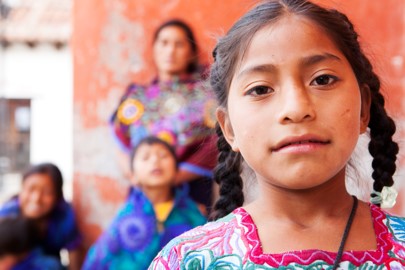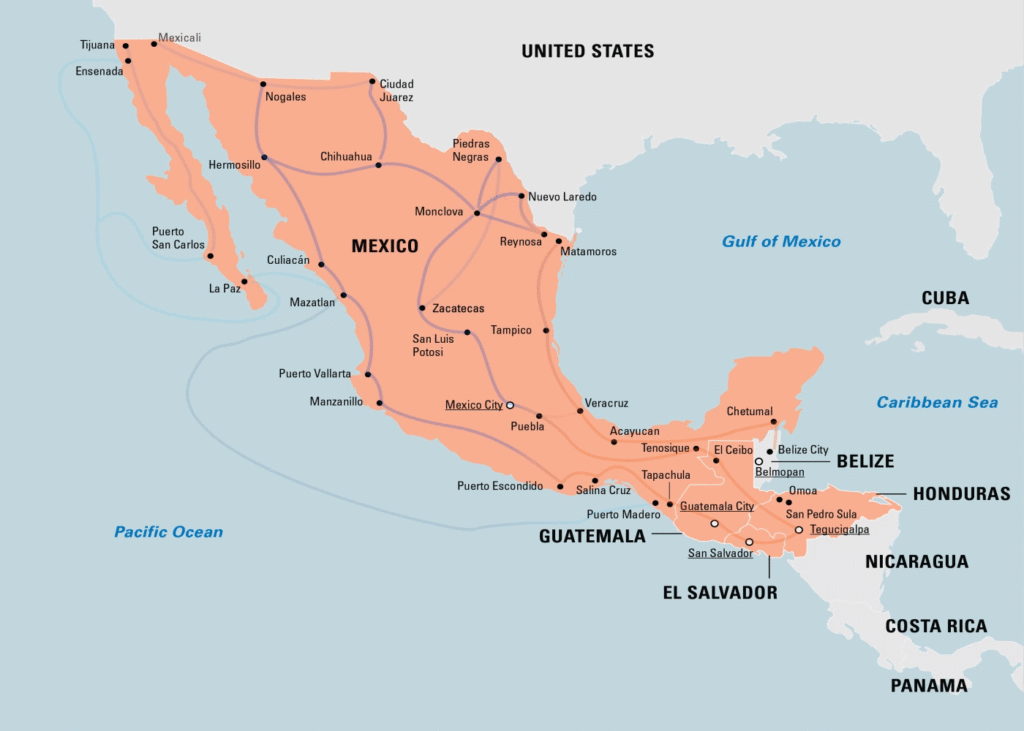About Unaccompanied Children
About Unaccompanied Children
__________
The majority of unaccompanied children (UCs) migrate to the U.S. from the Central American countries of Guatemala, Honduras, and El Salvador. Many children leave their countries of origin to escape violence, flee poverty, or reunite with their parents or other family members in the United States. They often undertake dangerous journeys over thousands of miles to arrive to safety in the U.S.
According to U.S. law (6 U.S. Code § 279), an unaccompanied child is a child is a who:
- has no lawful immigration status in the United States;
- has not attained 18 years of age; and
- with respect to whom—(i) there is no parent or legal guardian in the United States; or (ii) no parent or legal guardian in the United States is available to provide care and physical custody.
Check out the following resources to learn more about UC trends, reasons for migration, applicable laws/protections, and the flow of UCs through the immigration system.
- UC General Statistics – Facts and Data (ORR)
- Rising Child Migration to the United States (Migration Policy Institute)
- A Guide to Children Arriving at the Border: Laws, Policies, and Responses (American Immigration Council)
- UC Processing Flowchart (HHS)
- Legal Protections for Unaccompanied Minors in the Trafficking Victims Protection Act of 2008 (First Focus)
Unaccompanied children are usually apprehended at the southern U.S. border or other ports of entry by the Department of Homeland Security (DHS).
Due to their vulnerabilities, children are transferred within 72 hours to the custody of the Office of Refugee Resettlement (ORR), a division of the U.S. Department of Health and Human Services (HHS), which provides care for the majority of UCs through a network of ORR-funded care provider facilities.
These shelters should reflect the “least restrictive setting” that matches the child’s needs, and provide medical, educational, mental health, and other services to UCs, per the requirements of the Flores Settlement Agreement and ORR policies and procedures.
Click the links below to learn more!
- The Flores Settlement – A Visual Guide (Former Southwest Key)
- Unaccompanied Children: About the Program (ORR)
- ORR Unaccompanied Children Policy Guide
- UC Data and Fact Sheet (HHS)
Children in ORR care have the right to reunify with family or friends in the U.S. while they await their legal proceedings, if ORR deems it safe and appropriate. These relatives or family friends are called “sponsors,” who agree to take over the care of the child and ensure that they attend immigration court until their legal case is decided.
The family reunification process is designed to assess for the safety and suitability of a placement for the child. A sponsor must complete the ORR Sponsor Application Package, which may involve background checks, address and identity verification, and evidence of relationship with the child. This includes agreeing to the Sponsor Care Agreement, in which a sponsor agrees to provide for the unaccompanied child’s physical and mental well-being, including housing, education, medical care, and other basic needs. The sponsor also agrees to guidelines to ensure the child’s safety and compliance with the requirements of their immigration proceedings.
Click the links below to learn more about the family reunification process and UC release statistics:
- Safe and Timely Release from ORR Care (ORR Policy Guide)
- Sponsor Handbook (ORR)
- Unaccompanied Children Released to Sponsors by State and by County (ORR)
In some cases, ORR refers cases to providers like USCRI to conduct a home study prior to the the child’s release from ORR care, to ensure children are released to safe environments and that sponsors are prepared to meet their needs. A home study is required in cases of children with special needs, a history of abuse or trafficking, or UCs whose sponsor appears to pose a risk to the safety of the child, and at the discretion of ORR.
Post Release Services (PRS) are follow-up case management services provided to some UCs and families who are identified by ORR as needing additional support. PRS workers from USCRI and other providers complete home visits and phone calls with families to:
- ensure child safety
- promote placement stability
- provide education to facilitate UCs’ successful integration into the community, and
- connect families to needed resources in their community including school, medical, mental health, legal, and other services.
USCRI prides itself in being one of the largest providers of PRS and Home Study Services, providing exemplary services to unaccompanied children and their families.
Click the links below to learn more about Home Study and Post Release Services:
- USCRI Post Release Services Pamphlet
- Sponsor Assessment Criteria and Home Studies (ORR policy)
- Post Release Services (ORR policy)
PRS providers like USCRI can only accept referrals directly from ORR. If you know of a UC who needs additional support, you can call the ORR National Call Center (1-800-203-7001) to request services for the child.
USCRI’s UC Resource Center has a wealth of information for providers to learn more about issues impacting unaccompanied children, as well as supports and resources available to UCs.
Check out our Provider Resources page for more information in the areas of legal and immigration, child trafficking, health, mental health, child welfare, special UC populations, and more.
Our Community Resources Directory is another good place to get started to find affordable and immigrant-friendly resources in a child’s community.
Lastly, our Información para Familias page has educational handouts and videos in Spanish for UCs, sponsors, and their families. We invite you to share these resources widely!
Other resources:
- ORR National Call Center (1-800-203-7001) – resource referral and post release support for UCs
- ImportaMi – free and confidential help for UCs
- Inmigrante Informado – know your rights and resource information
Click below to access USCRI’s Unaccompanied Children eLearning course.
Unaccompanied Children Overview – USCRI
It is critical that providers use appropriate interpretation services when needed to ensure understanding and effective communication with unaccompanied children and their families. The links below offer information for best practices for the use of interpreters.
- Assessing the Need for an Interpreter (Centre for Culture, Ethnicity & Health)
- Tip Sheet: How to Work with Interpreters (Asian Pacific Institute on Gender Based Violence)
- Video: Hints and Tips for Working with Interpreters (Australian Department of Home Affairs)
- Tips for Working with Telephone Interpreters (LEP.gov)
- Considerations When Using Interpreters for Victims with Limited English Proficiency (API-GBV)
Social service providers may come into contact with unaccompanied children from indigenous communities in Central America, or from countries outsides of Central America. Our page on Global UC Populations has more information, including special services and benefits available to children from Afghanistan, Ukraine, Haiti, and Cuba.
El Comité Estadounidense para Refugiados e Inmigrantes (USCRI) hace todo lo posible por mantener actualizado el contenido del centro de recursos para jóvenes inmigrantes. Sin embargo, es posible que parte de la información cambie con el tiempo debido a la naturaleza en la que van evolucionando los temas incluidos. Se recomienda a los usuarios que verifiquen los detalles críticos con las organizaciones y/o profesionales correspondientes.
Los recursos externos proporcionados en esta biblioteca reflejan las opiniones y puntos de vista de sus autores originales y no necesariamente representan los de USCRI.
ÚLTIMA ACTUALIZACIÓN: septiembre de 2025
U.S. Committee for Refugees and Immigrants (USCRI) makes every effort to keep the content within the UC Resource Center up-to-date. However, some information may change over time due to the evolving nature of the topics covered. Users are encouraged to verify critical details with the appropriate organizations and/or professionals.
External resources provided in this library reflect the views and opinions of their original authors and do not necessarily represent those of USCRI.
LAST UPDATE: September 2025













